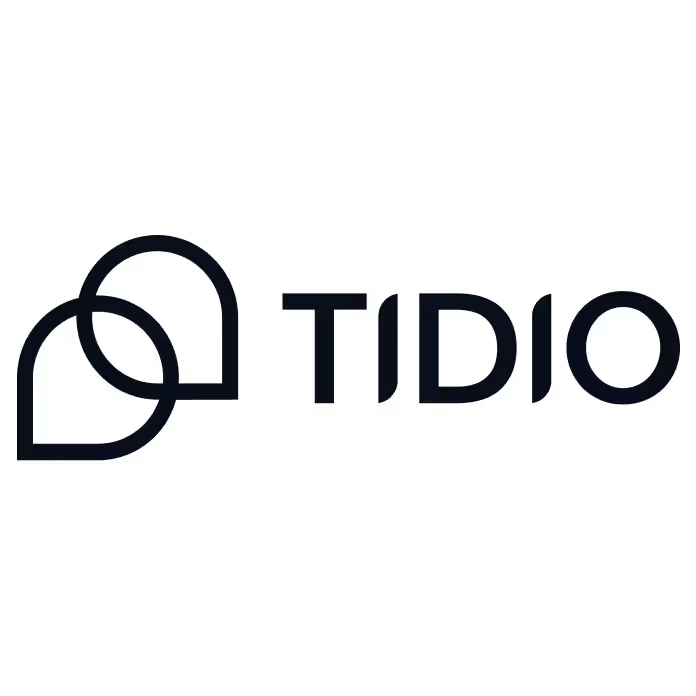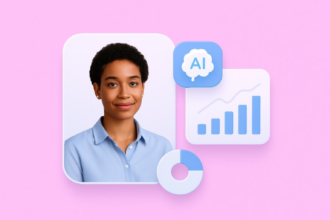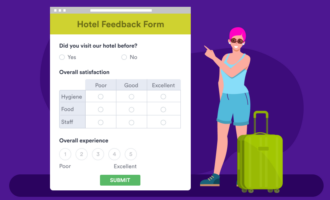Responding to customers in real time sounds easy until dozens of conversations happen at once on your website and other support channels — then, it becomes a real juggling act. That’s why businesses need customer messaging platforms that not only make live chat possible but also help manage conversations across multiple channels seamlessly.
Tidio and Intercom are two popular customer service tools designed for businesses of all sizes. But while Tidio is a budget-friendly live chat solution, Intercom features a full-scale customer engagement suite. In this Tidio vs Intercom comparison, we’ll evaluate how both platforms stack up in terms of chat features, automation, integrations, scalability, and pricing. Then we’ll show you an alternative that may be an even better customer service solution for your team.
Tidio vs Intercom at a glance
 Tidio |  Intercom | |
|---|---|---|
| Best for | Small and medium-sized businesses in e-commerce, services, and tech | Medium and enterprise businesses in tech, retail, education, and more |
| User experience | Intuitive interface and fewer features make it easy to get started | Advanced features require more setup and customization, leading to a slow learning curve for many |
| Messaging style | Chat-first via website chatbots | Unified inbox for multiple channels |
| Automation tools | Intuitive automation flows for engaging customers | Advanced automation flows with self-serve capabilities for customers |
| AI features | Copilot and conversational AI agent | Copilot and conversational AI agent |
| Platform support | Connects with 100+ third-party tools | Connects with 450+ third-party tools, plus API for custom integrations |
| Pricing | Free plan: $0 Starter: $24/month Growth: $49/month Plus: $749/month Premium: From $2,999/month Lyro AI agent and Flows are sold separately | Essential: $29/seat/month Advanced: $85/seat/month Expert: $132/seat/month Fin AI agent, Proactive support plus, and Copilot are sold separately |
What is Tidio?
Tidio is an AI-powered customer service software that provides real-time support to website visitors and manages interactions across multiple channels, like social media and email. It includes features such as live chat, no-code automated flows, a conversational AI agent (Lyro), and a help desk to help small businesses improve customer communication, reduce support costs, and increase sales.
Tidio focuses on chatbot automation and supports multiple languages, making it perfect for delivering localized web support to customers worldwide. It boasts a simple interface that’s easy for nontechnical teammates to set up and customize in minutes. Whether you’re serving hundreds or thousands of customers, Tidio offers affordable pricing options and connects with the rest of your tech stack via built-in connections.
What is Intercom?
Intercom is an AI-powered omnichannel customer communication and support platform for businesses of all sizes. With features like live chat, proactive messaging, product tours, and help desk capabilities, the platform provides sales, marketing, and support teams with all the tools they need to interact with and meet the rising needs of customers.
Thanks to its workflow automation tools, Intercom helps businesses design self-serve experiences for their customers. Its customer data platform can segment customers based on attributes — such as purchase history, support history, or product usage — to enable targeted messaging. The platform is designed to help growing and enterprise businesses scale their customer relationships from a single centralized solution. It offers premium pricing and an extensive app store with direct integrations to third-party enterprise business tools.
Tidio vs Intercom: What’s the same?
As conversational marketing software, both Tidio and Intercom offer the core capabilities you may be looking for when evaluating customer service technology. These include:
- Live chat: Add chatbot widgets to your website for engaging visitors and delivering real-time support. While Tidio focuses mainly on website chat, Intercom’s live chat extends to mobile apps, support polls, and more.
- Automation: Build no-code workflows for handling repetitive tasks and engaging customers at different stages of their journey.
- Integration: Sync data and streamline your customer service workflows with direct and custom integrations to other tools in your tech stack.
Despite their similarities, each tool delivers support for these features in a different way. In the following section, we break down the key features of each platform so you can see where each tool excels and where it might fall short.
Key features of Tidio
- Live chat widget: Tidio stands out with its lightweight chat widget for interacting with visitors in real time. Features like live typing previews, video calls, and real-time visitor locations help agents personalize interactions and convert visitors into buyers. Through the live chat, support agents can deliver canned responses to repetitive queries, attach files for visitors to download, and even restrict user access by IP addresses.
- AI chatbot automation: The Tidio platform lets you build no-code automated conversion paths (called Flows) for engaging visitors and executing simple tasks based on specific triggers. You can create Flows to generate leads, cross-sell products, save abandoned carts, or answer common FAQs, freeing up support agents and reducing your customer service costs.
- Multilingual support: Tidio supports up to 12 languages, allowing your customers to receive answers in their preferred language.
- Visitor tracking: In addition to showing visitor locations, Tidio tracks visitor activities on your website. By providing you with customer contact details, browser type, pages they’ve visited, tags used in conversations, and their location, Tidio helps you segment visitors better, so you can deliver personalized interactions and increase conversions.
- Basic integration: With almost 100 direct integrations to online shopping platforms, productivity apps, and marketing tools, you can connect Tidio with many of the apps your teams use to streamline workflows and reduce time spent switching between tools.
Key features of Intercom
- Customizable messenger: Intercom Messenger is Intercom’s all-in-one chat tool for communicating with your customers. It allows you to engage and deliver content to your customers whenever they need it. The messenger is highly customizable with spaces (such as home, messages, news, and tickets), apps, and other bespoke functionality to provide users with a memorable experience directly from the chat window on your website. You can stylize the messenger with your own branding and customize it to support your users in over 45 languages. Intercom’s messenger tool also extends to the mobile app, and its AI Agent, Fin, is integrated to enable features of GenAI in customer service.
- AI-powered conversation routing: No-code workflows can automatically route conversations to the right team to reduce the time your agents spend trying to understand context and triaging tickets. This speeds up resolution times and enhances team efficiency. The Intercom’s workflow templates cover a range of channels, including web, SMS, email, and social media, to ensure all conversations are taken care of, no matter where they originate.
- Proactive messaging campaigns: In addition to responding to queries, Intercom allows you to get ahead of and resolve common customer support issues with proactive tools like outbound messages, product tours, banners, and mobile carousels, even before customers need support.
- Product tours and onboarding flows: Intercom’s proactive support tools help you create interactive in-app guides and walk-throughs to seamlessly onboard new customers and guide them through common hurdles, such as installing or configuring your app.
- Robust reporting and analytics: Intercom helps you track human and AI support metrics with comprehensive reports and analytics. You can build custom reports from scratch or use AI-generated reports to analyze response time, resolution rates, and customer satisfaction scores (CSATs).
Tidio vs Intercom: What makes each unique?
Even though Intercom and Tidio have many of the same features, they still include unique capabilities that can sway you in one direction, depending on your needs.
Unique features of Tidio
- Low-cost entry: Tidio is known for its affordable pricing. It offers a generous free plan plus usage-based pricing that works well for small and budget-conscious businesses.
- Quick setup for small teams: The platform promises a fast setup time of under five minutes, and many users commend it for being easy to implement and use.
- Multilingual chatbot features: Tidio offers automatic language detection and real-time translation to make supporting global customers easy.
Unique features of Intercom
- Rich automation workflows: Intercom offers sophisticated no-code automations for routine tasks like routing queries, categorizing tickets, and more.
- Multichannel customer engagement: With Intercom, you can meet customers wherever they prefer to communicate, whether that’s on the phone, via SMS, or over social media.
- Strong analytics and onboarding tools: You can easily onboard customers with Intercom’s dedicated onboarding tools. Track human and AI agents with comprehensive analytics and reporting.
Pro Tip
Want a lightweight, customizable alternative to rigid help desk systems? Build it with Jotform Workflows + Tables + Boards. Turn form submissions into trackable tickets, auto-assign with conditional logic, and manage progress in a Kanban board — no heavy software as a service (SaaS) suite required.
Plans and pricing
Intercom and Tidio have very different pricing plans. While Tidio offers usage-based pricing that scales with your needs, Intercom prices its software by seat (i.e., support agents), which makes it notably more expensive. That said, both platforms allow you to test-run their software before committing — Tidio for 7 days and Intercom for 14 days. Tidio and Intercom also sell their AI agents at separate prices and offer paid add-ons for enhancing the customer support experience. Here is a full breakdown.
Tidio pricing
- Free plan: $0 per month for up to 10 agents with access to live chat, help desk, 50 free Lyro AI agent conversations (with the option to upgrade up to 1,000), 100 Flow automations, Copilot, 50 billable conversations, and an email management system. Ideal for solopreneurs or small businesses looking for the best live chat software without a huge price tag.
- Starter: $24.17 per month (billed annually). Includes everything in the Free plan plus 100 billable conversations.
- Growth: $49.17 per month ( billed annually) for everything in Starter plan plus 250–2,000 billable conversations, advanced analytics, visitor info, live typing, automatic chat assignment, and more.
- Plus: $749 per month (billed annually) for everything in Growth plan plus custom billable conversations, custom Lyro AI agent conversations, custom Flows, dedicated success manager, dedicated training sessions, and more.
- Premium: From $2,999 per month based on your needs.
- Lyro AI agent add-on: Starts at $32.50 per month for 50 conversations.
- Flow add-on: Starts at $24.17 per month for 2,000 visitors.
Intercom pricing
- Essential: $29 per seat per month (billed annually). Includes access to Intercom Messenger, shared inbox, pre-built reports, public help center, and more. Does not include multiple team inboxes or workflows, and there’s limited access to the ticketing system and Fin AI in inbox.
- Advanced: $85 per seat per month (billed annually). Includes everything in Essential plan plus multiple team inboxes, workflow automation builder, multilingual help center, workflows for Fin, and more.
- Expert: $132 per seat per month (billed annually). Includes everything in Advanced plan plus full access to ticketing system, Fin in inbox, extended API limit, real-time dashboard, and more.
- Fin AI agent add-on: $0.99 per resolution (can be purchased separately and added to any plan)
- Copilot add-on: $29 per agent per month
- Proactive Support Plus add-on: $99 per month
Who should use Tidio, and who should use Intercom?
Tidio is more suitable for small businesses, especially e-commerce and service providers looking for a simple, cost-efficient way to enhance customer engagement on their websites. Its user-friendly live chatbots, generous free plan, and quick setup make it a solid Intercom alternative for businesses with limited budgets.
Intercom, on the other hand, is best for fast-growing SaaS companies and enterprise IT teams looking to consolidate chat, email, social, and phone support into a single platform. Its proactive messenger-first approach makes it a great Tidio alternative for larger teams looking to onboard customers and resolve issues quickly with personalized support.
Choose Tidio if you have a small team and a limited budget. But choose Intercom if budget is not an issue and you need an all-in-one platform with multichannel support, advanced customer engagement tools, and automation capabilities.
Why Jotform might be the better customer service solution for your team
At the end of the day, both Tidio and Intercom are capable tools — but they lock you into a predefined model of support. Tidio keeps things simple but limited, while Intercom pulls you into its advanced ecosystem. Neither gives you complete freedom to design a setup that truly reflects how your team works.
That’s where Jotform stands out. Instead of forcing you into a rigid support framework, Jotform gives you the flexibility to build your own customer service environment — whether that means a custom help desk, AI-powered agents, or chatbots tailored to your workflows. With Jotform, you can deliver proactive support that adapts as your business grows, without being locked into someone else’s playbook.
Here are the key benefits of using Jotform’s custom service ecosystem.
Automate multichannel conversations with Jotform AI Agents
Use Jotform’s conversational AI agents to keep every conversation consistent, no matter where it starts. Jotform AI Agents can manage requests across email, live chat, social platforms, SMS, and even voice — delivering tailored, human-like responses instantly. With over 7,000 AI Agent templates for Shopify, SMS, Instagram, voice, and more, you can cover every channel while routing complex issues to human agents when needed. And because Jotform AI Agents share the same knowledge base as your other Jotform tools, customers get a seamless, unified brand experience wherever they connect.
Build a custom help desk with Jotform Workflows, Tables, and Boards
With Jotform, you can spin up a fully functional help desk in minutes — no heavy ticketing software required. Start by using Jotform Form Builder to create forms that capture requests, complaints, and feedback in a structured way. Those form submissions automatically flow into Jotform Tables, giving your team a central, user-friendly database to track every detail. From there, Jotform Boards turns each request into a task your agents can manage in Kanban view, making it easy to visualize workloads, collaborate, and resolve issues quickly.
The help desk becomes even more powerful with Jotform Workflows. Using Jotform’s ready-made customer service form templates, you can layer on automated notifications, conditional routing, status updates, and approval flows. That means requests are automatically assigned, progress is tracked, and resolutions move forward without manual oversight, helping your team deliver responsive, organized support without the cost or complexity of traditional ticketing systems.
Respond to emails faster with Gmail agent
Keep your inbox moving without adding more tasks to your team’s desk. Jotform’s intelligent Gmail Agent can draft on-brand replies to incoming customer requests by learning from your past conversations. This means your agents spend less time writing repetitive responses and more time focusing on more complex interactions. You still have full control — the Jotform Gmail Agent only creates drafts, so every message can be reviewed and adjusted before sending. And because it draws from the same knowledge base as your other Jotform tools, your communication stays consistent across every channel.
Provide instant website support with AI chatbots
Jotform’s AI chatbots give your visitors answers the moment they need them. These AI tools can handle FAQs, guide users through forms, and offer personalized support in real time without tying up your team. The result is a more efficient customer service process, happier customers, and higher conversions.
Instead of fitting your support team into a rigid support framework, why not use Jotform tools to design the type of customer service setup your team needs? Start with a form customized to your customer service situation, then add as many components, AI agents, and automation flows as necessary to meet the needs of your customers. Get started for free today or reach out for a custom quote.
This post is for business owners, support managers, and growing teams who are comparing Tidio and Intercom to find the right customer messaging platform for live chat, automation, and multichannel support — and who want guidance on choosing the best fit for their budget, workflow, and customer engagement goals.









































Send Comment: